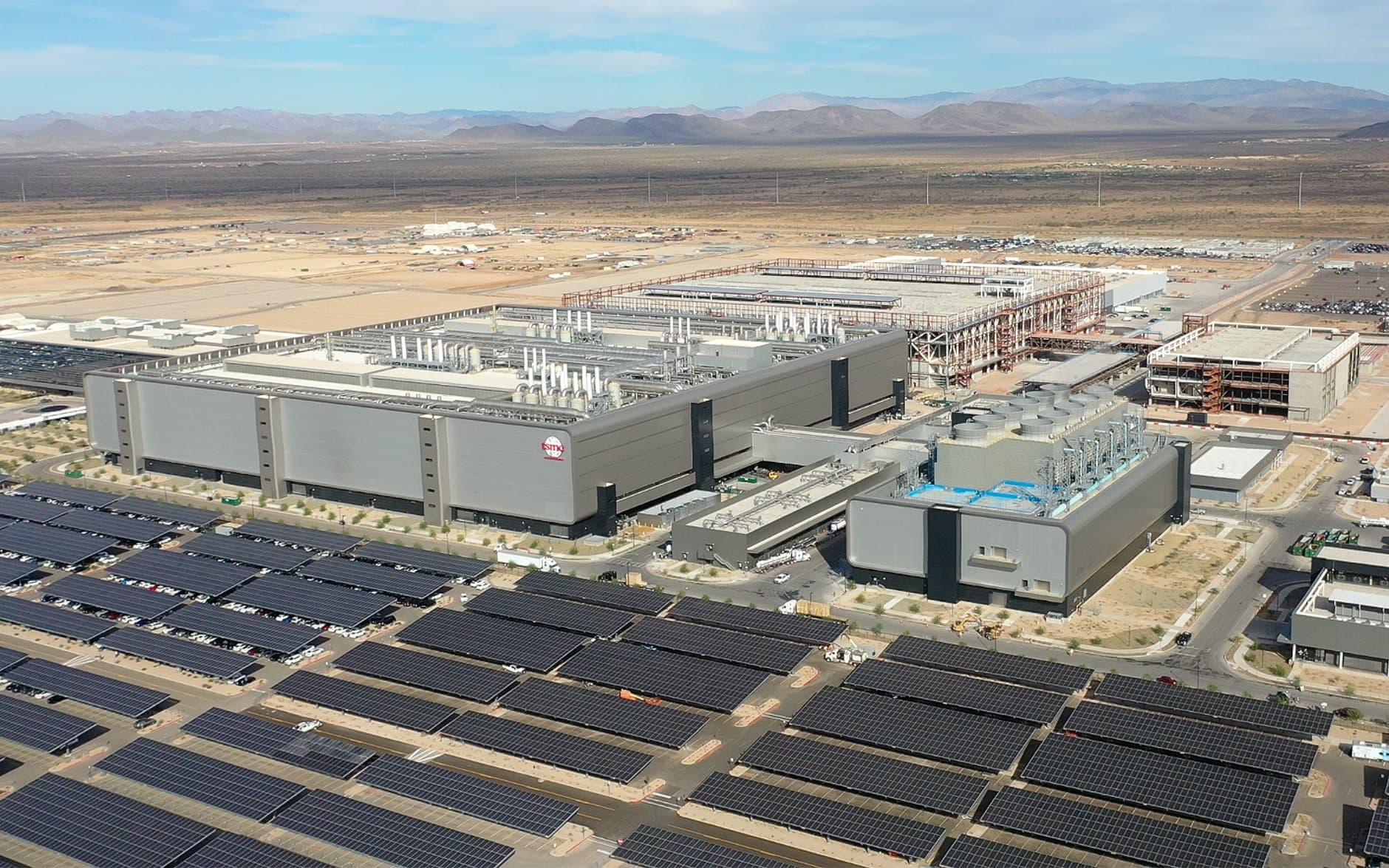TSMC Arizona Commences 4nm Chip Production, Backed by $6.6 Billion CHIPS Act Grant

Phoenix, Arizona – Taiwan Semiconductor Manufacturing Company (TSMC) has initiated high-volume production of advanced 4nm chips at its facility in Phoenix, Arizona, marking a pivotal moment for domestic semiconductor manufacturing in the United States. Industry observer Brian Roemmele highlighted the site as the "start point for the most cutting edge high nanometer chip fabrications" and one of TSMC's "most automated factories." This development is central to strengthening the U.S. chip supply chain and reducing reliance on overseas production.
The ambitious TSMC Arizona project represents a total investment commitment of up to $165 billion, making it one of the largest foreign direct investments in the U.S. The U.S. Department of Commerce has bolstered this initiative by signing a non-binding preliminary memorandum of terms with TSMC Arizona, providing up to $6.6 billion in direct funding and up to $5 billion in loans under the CHIPS and Science Act. This funding supports the construction of a "gigafab" cluster planned to include up to six fabs, two advanced packaging facilities, and a research and development center.
The first fab, which began high-volume production in early 2025, is currently manufacturing 4nm-class chips, including the Apple A16 Bionic for iPhones, Apple S9 for smartwatches, and AMD Ryzen 9000-series CPUs, with yields reportedly comparable to those achieved in Taiwan. Looking ahead, the second fab is slated to produce 3nm technology by 2028, while a third fab is planned for 2nm or more advanced processes, with production potentially accelerating to 2027.
This expansion is a strategic response to global supply chain vulnerabilities and surging demand for advanced chips, particularly those powering artificial intelligence. The initiative aims to create approximately 6,000 direct high-tech jobs, fostering a robust domestic semiconductor ecosystem. U.S. Commerce Secretary Gina Raimondo emphasized the significance, stating, "For the first time ever in our country’s history, we are making leading-edge 4nm chips on American soil."
Despite the progress, the project has faced challenges, including higher construction costs in the U.S. compared to Taiwan and the need to develop a skilled workforce. However, TSMC is actively building out its ecosystem, including partnerships for advanced packaging services with companies like Amkor, though some chips initially require shipment to Taiwan for final packaging. The long-term vision for the Arizona complex underscores a significant push towards U.S. semiconductor self-sufficiency.